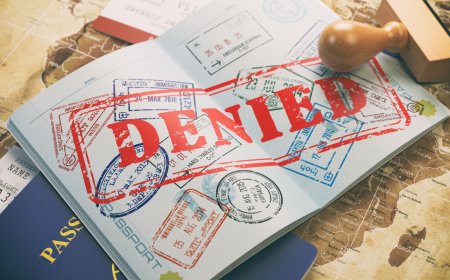Planning to Work in Australia? Here’s How to Get Your Skilled Visa Approved
Discover Australia's new Skills in Demand and National Innovation Visas, key changes, updated Core Skills Occupation List, and pathways to permanent residency.

As of December 2024, several new pieces of legislation have been enacted to introduce the Skills in Demand (SID) Visa and the National Innovation Visa. These visas offer new pathways for skilled migrants to work and contribute to Australia’s economy. Below, we outline the key features, requirements, and updates you need to know.
1. Skills in Demand Visa: Key Features
The Skills in Demand (SID) Visa has officially replaced the Temporary Skills Shortage (TSS) Visa, maintaining the Subclass 482 visa category number. It is designed to address skills shortages across various sectors, offering a pathway to permanent residency under certain conditions.
Visa Streams
The SID Visa includes three streams:
-
Specialist Skills Stream:
Available for applicants earning $135,000 or more annually (subject to annual indexation). This stream excludes occupations like trade workers and machinery operators. -
Core Skills Stream:
For applicants earning $73,150 or more, with annual indexing. Occupations must be listed on the new Core Skills Occupation List (CSOL), which consolidates the previous TSS occupation lists. -
Labour Agreement Stream:
Retains existing provisions from the TSS Visa, pending further updates regarding the Essential Skills Stream.
Work Experience Requirements
Applicants must have at least one year of full-time relevant work experience within the last five years, reduced from the previous two-year requirement.
Permanent Residency Pathways
SID Visa holders can apply for permanent residency through the Subclass 186 Visa’s Temporary Residence Transition (TRT) Stream, following two years of full-time, paid employment in the same occupation.
Sponsorship Obligations
The SID Visa maintains the same sponsorship obligations as the TSS Visa. However, it now provides greater flexibility for visa holders to change employers with extended time to find a new sponsor, up to 180 days at a time and 365 days throughout the visa period.
2. The Core Skills Occupation List (CSOL)
A key component of the SID Visa is the introduction of the new CSOL, which consolidates previous occupation lists and specifies which occupations qualify for the Core Skills Stream.
Occupations Added & Removed
-
Added Occupations:
Roles in cyber security, agritech, beauty therapy, and certain health and social welfare occupations have been added to the CSOL. -
Removed Occupations:
Several occupations, including various agricultural, creative, and health-related roles, have been removed. Notably, occupations like beef cattle farmers, event organizers, and certain healthcare workers are no longer eligible for the Core Skills Stream.
Caveats for Specific Occupations
The CSOL includes caveats that apply to certain occupations. For example, some occupations may only be eligible for certain work circumstances, or may be subject to international trade obligations.
3. Existing TSS Visa Holders: What’s Changing?
TSS Visa holders seeking to change employers can now transfer to the SID Visa if their occupation is listed on the CSOL and meets the necessary income requirements. However, those whose occupation is not listed may need to explore other visa options or remain with their current employer.
4. The National Innovation Visa
The National Innovation Visa has replaced the Global Talent Visa and is aimed at attracting highly skilled individuals to drive innovation in critical sectors of the Australian economy.
Key Changes
-
Invitation Requirement:
Applicants must now be invited by the Minister before applying for the visa. -
Exceptional Achievement:
Applicants must demonstrate internationally recognized achievements, both at the invitation and application stages. -
No Need for Endorsement:
The previous requirement to seek endorsement by the Prime Minister’s Special Envoy for Global Business Talent has been removed.
Impact on Global Talent Visa Applicants
Applicants who submitted a Global Talent Visa application before 6 December 2024 will continue to be assessed under the previous criteria, while new applicants will follow the updated process.
5. Strategic Immigration for Business
These new visa programs present significant opportunities for skilled workers and businesses alike. For businesses looking to sponsor skilled workers or for individuals interested in applying, it’s essential to stay informed about the latest developments.
If you need expert guidance on how these changes may affect your visa application or business sponsorship, professional advice is available. Reach out to migration agents for tailored support.
Stay updated on further developments by following industry news or connecting with professionals in the field. The Skills in Demand and National Innovation Visas offer exciting possibilities for those contributing to Australia’s economy and workforce.
What's Your Reaction?
 Like
0
Like
0
 Dislike
0
Dislike
0
 Love
0
Love
0
 Funny
0
Funny
0
 Angry
0
Angry
0
 Sad
0
Sad
0
 Wow
0
Wow
0









































































































